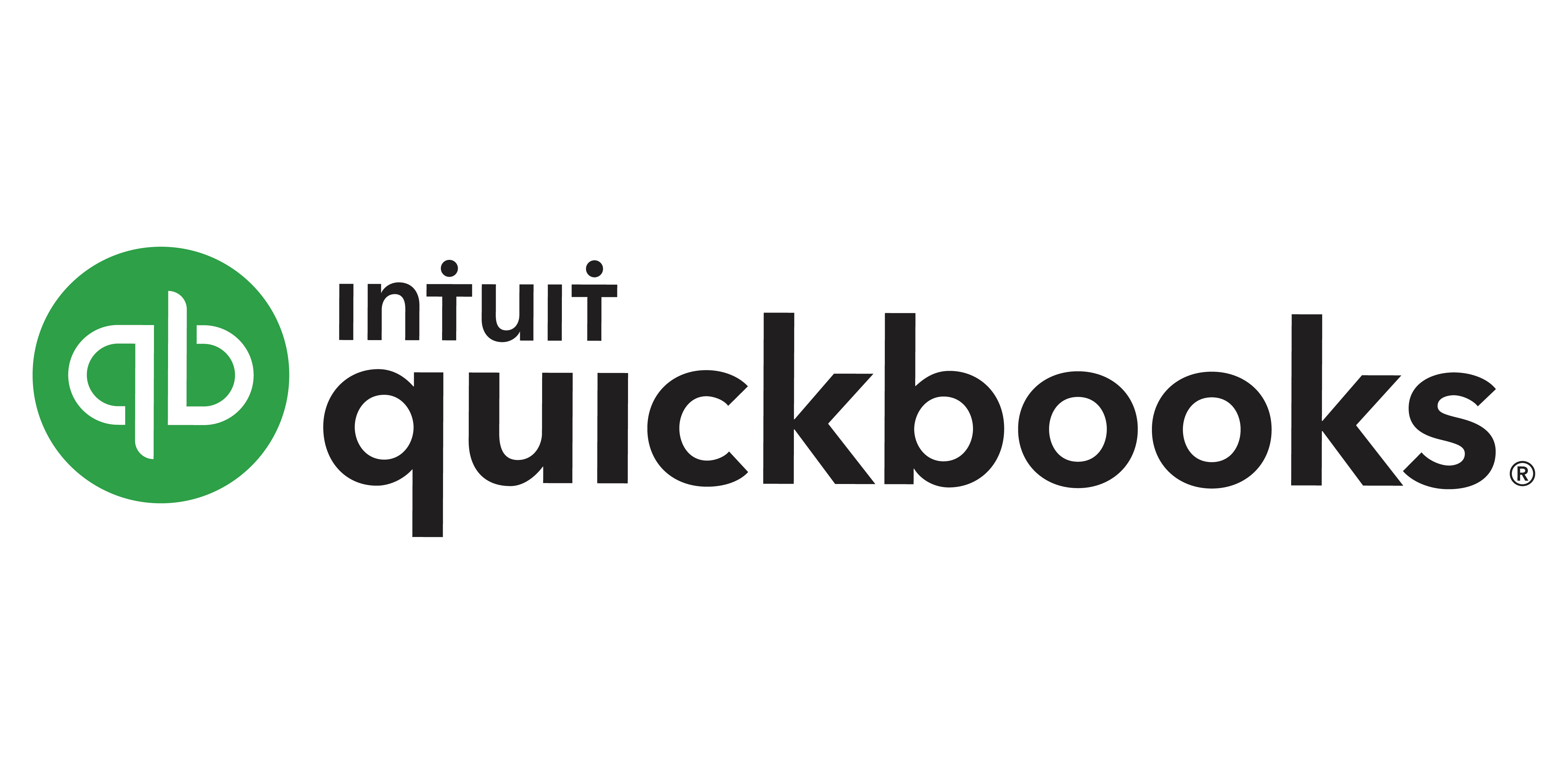Yes, App Builder Software is accessible across different devices and platforms. Most App Builder Software solutions are web-based, which means they can be viewed from any device that has an internet connection. This covers desktop computers, laptops, tablets, and cellphones. App Builder Software also allows you to design applications that are cross-platform compatible, such as iOS and Android, making them more accessible to a larger audience.
List of 20 Best App Builder Software
PlanetPCI, the premier software solution for all your business requirements. Our personalized services are crafted to optimize your processes and maximize efficiency. Our expert team ensures seamless integration and exceptional outcomes, empowering y...Read More PlanetPCI
Rokdi is a billing solution for your business! Our powerful software automates the billing process, including GST and customizable reports, saving you time and increasing efficiency. No more hassle with multiple tools, Rokdi has everything you need i...Read More Rokdi
SPIRITT is a project management tool that streamlines team workflow. Its features include real-time collaboration, simple task monitoring, and detailed analytics to enhance productivity and meet objectives seamlessly. SPIRITT is the ideal solution fo...Read More SPIRITT
ClaySys AppForms - a dynamic, low-code development platform that empowers you to effortlessly build custom forms, apps, and workflows. This user-friendly platform seamlessly integrates with popular data sources such as SQL, SharePoint list, and Azure...Read More ClaySys AppForms
Apphitect IM Solution is a instant messaging solution for all your communication needs. Our software specializes in offering cutting-edge technology solutions such as Enterprise mobility, mobile app development, and cross-platform development. With A...Read More Apphitect IM Solution
Alikeapps is solution for all your on-demand taxi booking needs. Our comprehensive Uber Clone software comes equipped with a user-friendly website and efficient native mobile apps for both iOS and Android platforms. Expect top-notch features and seam...Read More Alikeapps
CORPORATE ROBO is a companion for your corporate travels. Our services guarantee a hassle-free and flawless travel experience. With a dedicated team of professionals, we ensure unmatched quality and accuracy at every step. Trust in CORPORATE ROBO for...Read More CORPORATE ROBO
Xamarin - an award-winning platform for creating mobile apps. With the ability to write one code and effortlessly deploy it on multiple platforms, Xamarin is a preferred choice for developers. Its rigorous testing ensures a strong end product. Embrac...Read More Xamarin
Start.io is an innovative mobile advertising platform that helps businesses maximize their app revenue. This robust platform offers powerful targeting options and data-driven solutions to effectively reach their desired audience and generate higher e...Read More Start.io
Agriya is a prominent software company that offers budget-friendly and user-friendly clone scripts, specifically tailored for entrepreneurs and small to medium-sized businesses aiming to enter the thriving web and internet markets. Our scripts provid...Read More Agriya
Flatlogic solution for rapidly creating robust web applications. You no longer have to worry about setting up front-end, back-end, database, authentication, API, or quality codebase - Flatlogic includes it all. With our reliable hosting, you can buil...Read More Flatlogic
QuickBooks Online, the premier accounting software for entrepreneurs and business owners. Streamline your financial management with its intuitive interface, top-notch security measures, and cutting-edge features such as Online bank connectivity and W...Read More QuickBooks Online
Draftbit is a no-code mobile app building platform that gives developers the power to design and build mobile applications with ease. Our user-friendly visual interface and ready-made components simplify the app development journey, making it possibl...Read More Draftbit
Weebly is a leading web design platform that enables users to easily build and customize websites, blogs, and online stores. With a broad customer base, this powerful software has served as a launchpad for countless individuals and businesses to esta...Read More Weebly
The APP Company is arobust tool that can greatly enhance your businesss profits, customer retention, efficiency, online visibility, and foot traffic. With its budget-friendly solutions, this mobile app is an ideal choice for small businesses seeking...Read More The APP Company
MIT App Inventor is a platform that lets individuals, regardless of their coding expertise, design mobile apps using a visual and drag-and-drop interface. This intuitive software allows users to bring their app ideas to life without the need for adva...Read More MIT App Inventor
mern.ai - chat platform that utilizes cutting-edge AI technology to effortlessly create full-stack apps. Enjoy real-time previews and complete control in Code mode. Simplify deployment with one-click publishing and automatic GitHub integration. Effic...Read More mern.ai
Workozy is a software solution that caters to the needs of field force teams. Its customizable features make it the ideal choice for enterprises looking to optimize their workflow management. With Workozy, equip your team with the tools they need to...Read More Workozy
Officexlr is a Low-code software that enables every member of your team to easily build internal business apps, without any coding expertise. With Officexlr, you can quickly design fully customizable and flexible applications that cater to your uniqu...Read More Officexlr
VentaForce is a MLM software that has been meticulously crafted to cater to all your business needs. With over 20 years of expertise in the Direct Selling industry, we have combined cutting-edge technology to build solution for your business. Experie...Read More VentaForce
Learn More About App Builder Software
- What Is App Builder Software?
- What Are the Recent Trends in App Builder Software?
- Benefits of Using App Builder Software benefits of Using App Builder Software
- Important Factors to Consider While Purchasing App Builder Software?
- What Are the Key Features to Look for in App Builder Software?
- Why Do Businesses Need App Builder Software?
- How Much Time Is Required to Implement App Builder Software?
- What Is the Level of Customization Available in App Builder Software?
- Which Industries Can Benefit the Most from App Builder Software?
- Conclusion
What Is App Builder Software?
App Builder Software is a flexible tool that enables users to simply construct and design their own unique mobile applications without any coding skills or technical ability. This program has a user-friendly design and a large range of capabilities, making it a top choice for corporations, organizations, and individuals wishing to create their own apps.
One of the primary advantages of using app builder software is its ease of use and accessibility to non-technical people. This program avoids the need for difficult coding by providing drag-and-drop interfaces and pre-designed templates, allowing anybody, regardless of technical ability, to develop an app. App builder software also has a low cost. Businesses may save a substantial amount of money by designing, developing, and publishing their apps on a single platform, rather than paying expensive developers and designers separately.
Furthermore, app builder software provides a variety of adjustable capabilities, allowing users to design an app suited to their individual requirements. This program allows users to personalize their app by selecting a layout and appearance and adding capabilities like as push alerts and in-app purchases. Furthermore, app builder software frequently includes built-in analytics and reporting capabilities that give useful insights into app performance and engagement.This data may assist businesses in making educated decisions to improve their app and increase the user experience.
Overall, app builder software is an excellent choice for organizations and people wishing to create their own apps fast, effortlessly, and affordably. With its user-friendly interface, customization possibilities, and analytics features, this software enables app development easy for anybody, making it an excellent alternative for organizations trying to extend their digital presence.
What Are the Recent Trends in App Builder Software?
In today's technologically advanced world, mobile applications are crucial for organizations of all kinds. However, developing an app from scratch may be a difficult and expensive undertaking. This is where app building software comes in. App builder software enables anybody, regardless of technical background, to develop personalized and functioning mobile apps. As demand for mobile apps increases, so does competition in the app builder software industry. Keeping up with the newest trends will help you make an educated decision when selecting the best app builder software for your business.
1. Drag-and-Drop Interface: An intuitive drag-and-drop interface is now a regular feature in app building software. Users may simply add and change features, move objects around the screen, and preview the app in real time. This approach appeals to both new and seasoned app developers since it shortens the learning curve and accelerates the development process.
2. Cross-Platform Compatibility: With the proliferation of mobile operating systems, organizations can't afford to ignore any platform. App builder software is increasingly focusing on cross-platform compatibility, allowing users to create programs that run perfectly on both iOS and Android devices. This trend not only saves time and work, but it also attracts a larger audience.
3. Artificial Intelligence (AI) Integration: AI integration has revolutionized several sectors and is now finding its way into app building software. AI-powered services like chatbots and virtual assistants are gaining popularity, enabling businesses to deliver efficient and personalized customer service. Furthermore, AI may give analytical insights and automate repetitive operations, improving app development efficiency.
4. Cloud-Based Development: In the past, creating a mobile app needed a significant amount of hardware and software resources. However, with cloud-based app builder software, the complete development process can now be carried out online. This implies that consumers may use their app builder software on any device, work with team members remotely, and securely save data in the cloud.
5. Low Code/No-Code Platforms: Low code/no-code platforms have grown in popularity among non-technical users who wish to develop apps without having to code. These platforms provide visually attractive interfaces and pre-built templates, making it simple for anybody to create apps. This trend has made app development more accessible, cost-effective, and efficient for small enterprises and entrepreneurs. With these current developments in mind, it is critical to thoroughly assess your company requirements and select app builder software that corresponds with your objectives and budget. Keep these trends in mind, as well as other variables like cost, customer support, and scalability, to make an informed selection and build a successful mobile app for your company.
Benefits of Using App Builder Software benefits of Using App Builder Software
App Builder Software is a useful tool for organizations and people wishing to create customized mobile applications without considerable coding skills. This sort of software has several features and benefits, making it an excellent investment for anybody wishing to develop a mobile app.
Here are some of the major advantages of utilizing App Builder Software:
1. User-Friendly Interface: One of the most significant benefits of utilizing App Builder Software is the ease of use. With drag-and-drop pieces and pre-built templates, anybody with no technical knowledge can develop professional and effective mobile apps. This simplifies the development process, saving time and resources.
2. Saves Time and Money: Hiring a group of developers to design a custom mobile app may be costly and time-consuming. App Builder Software allows consumers to reduce development expenses and have an app ready in a fraction of the time it would take using traditional techniques. This is especially useful for small enterprises or solitary entrepreneurs who may have limited funds and resources.
3. Customisation: App Builder Software offers a great level of customisation, allowing customers to design apps suited to their individual demands and branding. Everything, from the user interface to the features and operations, may be customized to reflect the app's vision.
4. Multi-platform Support: Most software Builder Software allows for cross-platform development, which means that the same software can be produced for iOS and Android devices. This eliminates the need to engage different developers for each platform, ensuring a consistent experience for consumers regardless of device.
5. No Coding skills Required: As previously said, App Builder Software does not require substantial coding skills. This opens it up to a broader spectrum of consumers and enterprises, allowing them to enter the lucrative world of mobile apps with no technical obstacles.
6. Analytics: Most App Builder Software has built-in analytics capabilities, allowing users to analyze app performance and make data-driven choices. This useful information can assist to improve the app and enhance the user experience.
7. Regular Updates and Maintenance: Many App Builder Software suppliers give regular updates and maintenance to their platform, guaranteeing that the applications developed with their software are always current and compatible with the most recent mobile operating systems.
Important Factors to Consider While Purchasing App Builder Software?
When it comes to choosing the right app builder software for your needs, there are several important factors that you should consider. These factors will not only ensure that you make a wise investment, but also help you create high-quality, functional and user-friendly apps that accurately reflect your brand.
1. Features and Functionality: Before making a purchase, carefully evaluate the features and functionalities that the app builder software offers. This should include the ability to create both iOS and Android apps, customizable templates, drag-and-drop design interface, app analytics, push notifications, and in-app purchases. Make sure the software has all the necessary features to meet your specific app requirements.
2. Ease of Use: An app builder software should have a user-friendly interface and should be easy to navigate. It should not require any coding experience, allowing you to design and customize your app without any technical knowledge. Look for a software that offers a free trial period, so you can test its usability before making a commitment.
3. Cross-Platform Compatibility: With so many different devices and operating systems available today, it is crucial that the app builder software you choose is compatible with various platforms. This will ensure that your app can be accessed and enjoyed by a larger audience.
4. Pricing: The cost of app builder software can vary greatly. Some offer monthly or yearly subscription plans, while others require a one-time payment. Consider your budget and choose a software that offers the features you need at a reasonable price. Avoid locking yourself into long-term contracts unless you are confident in the software.
5. Customer Support: In case you encounter any issues while using the app builder software, it is essential to have reliable customer support. Look for software that offers multiple channels of support such as live chat, email, and phone support. Additionally, check customer reviews to get an idea of their response time and effectiveness in resolving issues.
6. Integration and Scalability: Consider the software’s ability to integrate with other platforms and services such as social media, payment gateways, and analytics tools. This will enable you to enhance your app’s functionality and reach a wider audience. Additionally, ensure that the software can accommodate your future growth and app updates. By considering these important factors, you can make a well-informed decision when purchasing app builder software.
Remember to also research and compare different options to find the best fit for your specific needs and budget. With the right app builder software, you can create a successful and engaging app for your business or personal use.
What Are the Key Features to Look for in App Builder Software?
When contemplating purchasing app builder software, a prospective buyer should check for a few important aspects. These features will have an impact not only on the app's general functioning and user experience, but also on the buyer's convenience and cost-effectiveness.
The following are the key things to consider while considering app building software:
1. User-friendly Interface: The app builder's interface should be straightforward and easy to use, especially for individuals with less technical understanding. This will save time and hassle throughout the app development process while also providing a seamless user experience for both the builder and the end-users.
2. Template And Customization Possibilities: Look for app builder software that provides a diverse set of pre-made templates and design alternatives. This enables you to develop a unique and visually appealing app without the need for substantial coding or design abilities. The option to alter themes and add your own branding components is also essential for giving your app a professional and consistent appearance.
3. Cross-Platform Compatibility: In today's digital world, it's critical to have your app available on various platforms, including iOS and Android. Look for app builder software that is cross-platform compatible, so you can reach a larger audience and boost your app's chances of success.
4. App Preview And Testing: A decent app builder should provide a preview option that lets you see how your app will appear and work before you publish it. This will allow you to make any required modifications to ensure that your app fulfills both your standards and the demands of your target audience.
5. Integration With Third-Party Tools: Determine if the app builder software is compatible with any third-party tools or services, such as analytics, marketing, or e-commerce platforms. This not only improves the functionality of your program, but also saves you time and effort by eliminating the need to move between multiple tools.
6. App Store Publication: Look for app builder software that simplifies the process of uploading your app to the App Store or Google Play. This should include instructions and assistance in satisfying the different app store standards and optimizing your software for maximum visibility and downloads.
7. Customer Support And Resources: Make sure that the app builder software provides dependable customer help in the event that you experience any problems or have inquiries during the app development process. Look for resources like tutorials, tips, and forums to help and inspire you while developing your app. When deciding on the best app builder software for your purposes, keep these crucial aspects in mind. When assessing alternative possibilities, keep your budget, target audience, and desired features in mind to ensure the greatest match for your app-building journey.
Why Do Businesses Need App Builder Software?
Businesses need app builder software for a variety of reasons. Whether they are small startups or large corporations, having a mobile app has become crucial for staying competitive and meeting customer expectations in today's digital age. With the increasing use of smartphones and tablets, businesses need to have a strong mobile presence to connect with their audience and drive sales.
One of the main reasons why businesses need app builder software is that it allows them to easily create and customize their own mobile app without the need for coding or technical expertise. This not only saves businesses time and money but also gives them more control over the features and design of their app. App builder software also enables businesses to expand their reach and target a wider audience by making their app available on various app stores, such as Google Play and the Apple App Store.
This gives businesses a broader reach and allows them to tap into the growing number of mobile users. Moreover, having a mobile app can also help businesses attract and retain customers, as it provides a convenient and user-friendly way for them to engage with the company's products or services. Another important aspect of app builder software is that it offers businesses the opportunity to enhance their brand image and improve customer loyalty.
With a well-designed and functional app, businesses can leave a lasting impression on their customers, making them more likely to return and make additional purchases. Additionally, app builder software often includes features for collecting customer feedback and analyzing usage data, which can help businesses improve their app and cater to their customers' needs.
In today's fast-paced business environment, having real-time access to data and insights is crucial for making informed decisions. App builder software typically includes tools for analytics and reporting, allowing businesses to track app performance, user engagement, and other key metrics. This helps businesses identify areas for improvement and make data-driven decisions to enhance their mobile strategy.
How Much Time Is Required to Implement App Builder Software?
The time required to deploy app builder software varies based on the program and project. However, there are certain broad criteria that might provide an estimate of how long the procedure will take. First and foremost, the complexity of your program will play a significant role in deciding implementation time.
If you want to build a simple, easy app with basic functionality, it may take less time than a more sophisticated software with extensive features and connectors. Second, the learning curve for utilizing the app building software will have an influence on the implementation timeline. If you and your staff are already familiar with the program, the procedure may go more quickly.
However, if you are new to using the program, you may need to devote more time to training and becoming familiar with the tools and capabilities. Another key consideration is the availability and participation of your team members. The more individuals participating in the project and their availability, the faster the implementation may be.
However, communication or decision-making delays may cause the schedule to be extended. In general, most app builder software suppliers say that you can construct a basic app in a couple of hours, however more complicated apps might take weeks or months to finish. It ultimately depends on your project's requirements and the resources available for implementation.
It is also worth mentioning that the implementation time may vary depending on the app development program you use. Some applications may demand coding and programming abilities, which can slow down the process, whilst others provide a drag-and-drop interface, making app creation faster and easier. Finally, the time required to implement app builder software varies and is determined by a number of factors, including the complexity of your app, your team's familiarity with the software, team members' availability and involvement, and the software's specific features and tools. To guarantee a smooth and fast implementation process, these aspects must be extensively researched and understood before picking an app builder software.
What Is the Level of Customization Available in App Builder Software?
When it comes to app builder software, one of the most essential factors for prospective purchasers is the degree of customisation provided. After all, each business has distinct requirements and branding, and an app builder that allows for broad customization may significantly improve the overall user experience. But what precisely does "customization" entail in terms of app building software? At its heart, customisation in app builder software refers to the ability to modify and tailor various components of your app to match your unique needs.
This might include features, design components, user interfaces, and so forth. The extent of flexibility possible is largely determined by the app building software you pick, but here are some broad items to consider. For starters, a decent app builder software should have a variety of templates and pre-built features to pick from. This allows you to build a solid foundation and then fine-tune the nuances to meet your specific demands.
Some tools may even enable you construct your own templates from start, giving you total control over your app's style and layout. Furthermore, the option to incorporate bespoke branding components such as logos, colors, and fonts is critical for organizations seeking to project a professional and coherent brand image. Additionally, the ability to add new features or interact with other services and platforms may significantly improve the usefulness of your project.
The amount of personalization also applies to the user experience. A decent app builder should allow you to customize the navigation, menu options, and user experience to meet your target audience's demands. This may significantly increase the usability and uptake of your software. Finally, evaluate the technological factors of customisation.
The ability to add custom code and modify your app's core framework can significantly increase its capabilities and distinctiveness. However, this may need considerable technical skills or a specialized staff, so consider your resources before plunging into extensive customisation.
Which Industries Can Benefit the Most from App Builder Software?
App builder software is a sophisticated tool that enables users and organizations to develop mobile applications without requiring coding or technical skills. With the explosion of mobile usage in today's digital world, apps have become a crucial tool for businesses looking to keep in touch with their consumers and promote growth. But which sectors would profit the most from app building software?
We'll talk about the top sectors that may profit from using app builder software to improve their brand and attract a larger audience.
1. Small and medium-sized businesses (SMEs): Small and medium-sized enterprises sometimes lack the resources and funding to invest in costly app development services. This is where app building software may help them. With its drag-and-drop interface and pre-built templates, small and medium-sized businesses can simply develop their own mobile app to market their products or services, increase sales, and enhance client interaction. This affordable solution enables SMBs to compete with larger firms in the digital market without breaking the budget.
2. E-commerce Industry: The e-commerce business is quickly expanding, and having a mobile app has become essential for online shops. Using app builder software, e-commerce businesses can simply construct a user-friendly app that provides a smooth purchasing experience for customers. These applications may contain features like as push alerts, in-app purchases, and tailored suggestions, making it simpler for companies to increase sales and income.
3. Educational Sector: App building software is also becoming useful in the education industry. With the proliferation of online learning and the need for remote education, educational institutions can utilize app builder software to construct their own learning applications. These applications enable students to access course materials, interactive quizzes, and communicate with professors, making studying more accessible and interesting. Furthermore, app builder software enables universities to monitor student progress and solicit feedback, making it simpler to improve the entire learning experience.
4. Food & Beverage Industry: The food and beverage business may also profit significantly from app builder software. With the growing demand for food delivery services, businesses may develop their own unique applications that allow consumers to order food, make bookings, and even pay for their meals. This not only enhances the restaurant's productivity, but also boosts client happiness and loyalty.
5. Healthcare Sector: The healthcare business may also profit tremendously from app building software. With the growing popularity of telemedicine, healthcare professionals may utilize app builder software to construct safe and user-friendly applications for virtual consultations, appointment reservations, prescription refills, and medical records. This makes it simpler for patients to get healthcare services from the comfort of their own homes, particularly those with mobility challenges or who live in distant places.
Conclusion
To summarize, selecting the correct app builder software is critical for any business or person trying to develop a mobile application. Our article has offered a thorough review of the essential elements to consider while making this crucial decision. We hope this guide has helped you in your quest for the best app builder, from analyzing your individual objectives and budget to reviewing the features and connectors provided by various apps.
Before making your ultimate decision, conduct comprehensive research and comparisons, try out free trials, and read user reviews. With the appropriate app builder software, you can turn your app ideas into reality and communicate with your target audience in a unique and compelling way. Now it's time to take the next step and begin developing your application!
App Builder Software FAQ's
Can App Builder Software Be Accessed Across Multiple Devices and Platforms?
Is App Builder Software Future-Proof and Adaptable to Emerging Technologies Like Ai, Blockchain or Iot?
Yes, most app building software today is intended to be future-proof and adaptable to upcoming technologies like as AI, blockchain, and IoT. These software frequently provide regular upgrades and new features that are in accordance with current technological trends. Furthermore, they often include a versatile and adaptable framework that enables developers to quickly incorporate these technologies into their projects. This ensures that the apps created with such software stay relevant and functional in a continuously changing technological context.
Is There a Free Trial Offered to Assess App Builder Software Before Committing?
Potential app builder software customers can take advantage of free trial offerings to evaluate the program before making a purchase decision. These free trials often last 7 to 30 days and include full access to the software's features and functions.
This allows consumers to evaluate its usability, compatibility with their preferred platforms, and overall usefulness before making a selection. Some app builder software may also provide restricted versions of the program for free, allowing customers to test the product before purchasing the full version.
Does App Builder Software Offer Data Security Features and Meet Regulatory Compliance Standards?
Yes, App Builder Software has data security safeguards to keep user data safe from unwanted access. This includes encryption, secure login, and data backup procedures. Furthermore, the program is built to meet a variety of legal standards, including GDPR and CCPA, to secure user data privacy. This assures that the app built using the program complies with all applicable data protection rules.
Can App Builder Software Integrate Seamlessly with Existing Tools and Platforms?
Yes, app building software can work smoothly with existing tools and platforms. Most app builder software is compatible with prominent platforms and technologies like Google Analytics, Facebook, and Salesforce.
Furthermore, some app building software provides unique integration options for a more personalized experience. This enables app developers to streamline their workflows and improve the functionality of their apps. Businesses may easily manage and optimize the potential of their app through seamless connection.






















